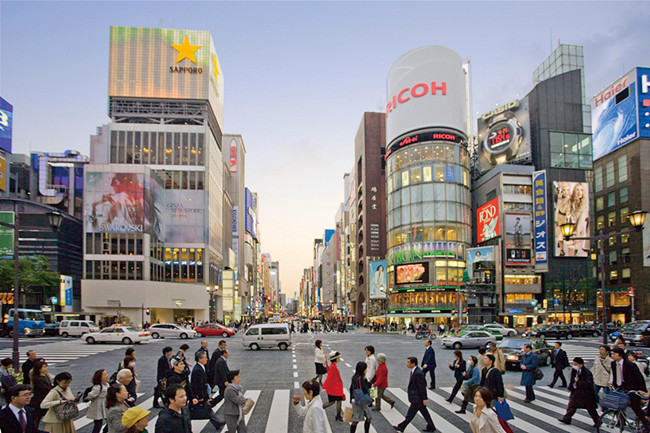All hail the splurgers from the east
By Xu Lin ( China Daily ) Updated: 2015-11-28 07:29:51
 |
|
Ginza in Tokyo is also a hot choice for Chinese shoppers. [Photo provided to China Daily] |
The glitz and the tinsel are not limited to Christmas and other holidays either. Los Angeles, the patron saint of tinsel, drew about 690,000 tourists from the Chinese mainland last year, the Los Angeles Tourism and Convention Board says. There they avail themselves of the chance not only of taking in Hollywood and visiting Universal Studios but spending money in shops as well.
The city prides itself on its great places for shopaholics, with everything from high-end shopping centers and outlet malls to museum shops offering souvenirs. Holders of cards issued by UnionPay, China's largest bank card processing provider, enjoy discount coupons in some outlets.
Last year the tourism and convention board launched a program called China-Ready that offers training to hotels, attractions, shopping centers and other tourism industry businesses to help them look after Chinese visitors.
China-Ready-designated companies provide Mandarin information websites and brochures, and accept China UnionPay, and program organizers plan to have more tour guides speaking Mandarin in scenic spots around Los Angeles.
On the other side of the country, Florida promotes itself as a destination that offers Chinese tourists the chance to shop, sightsee, dine and visit amusement or theme parks and other parks and monuments. The state's official tourist bureau, Visit Florida, reckons the Chinese tourists have an average household income of $54,000 annually and that nearly half are aged 18 to 34.
They are drawn to high-end stores such as Louis Vuitton and Chanel, electronic stores selling the latest technology of popular brands such as Apple, and clothes stores of American brands including Gap, the bureau says.
"Last year we continued to see significant growth in the amount spent within the top merchant categories for spending by Chinese visitors, including cosmetics stores, clothing stores and jewelry stores," says Alfredo Gonzalez, vice-president of international sales and market development of Visit Florida.
Like Britain, the United States has been relaxing visa rules for Chinese, last year extending short-term tourism visas issued to them from one year to 10 years. This means Chinese visitors do not have the hassle of going through an entire visa application process each time they visit, Gonzalez says, and they end up being repeat visitors.
Switzerland is unable to wield relaxed visa rules as a selling point to Chinese, but, apart from its mountains and lakes, its sales pitch is as attractive and as reliable as its best watches. Indeed these very watches, in their huge variety, are a big draw card for Chinese, among whom wearing a timepiece that not only looks expensive but is expensive, is one way of making a particular kind of statement.
|
|
|
|
|
|
|
|

























 Raymond Zhou:
Raymond Zhou: Pauline D Loh:
Pauline D Loh: Hot Pot
Hot Pot Eco China
Eco China China Dream
China Dream China Face
China Face






